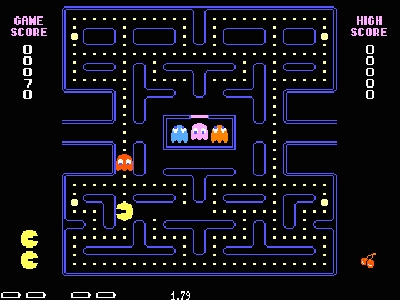Researchers Investigating Why People Win or Lose at Games
Researchers have spent some time to find out more on the causes of why someone may win a game and someone else loses.
Typically, the answer we believe to be right is based on the equilibrium point. The more we understand a game and the more we achieve "perfect knowledge of what [we] are doing and of what [our] opponents are doing" the higher our chances of winning.
Applied to a simple game that consists of only a few moves, we can easily figure out the optimal strategy to win. The more factors and choices are introduced, the more difficult a game is to understand and our decisions actions become less rational.
However, Tobias Galla from The University of Manchester and Doyne Farmer from Oxford University and the Santa Fe Institute suggest that "Equilibrium is not always the right thing you should look for in a game", simply because "people do not play equilibrium strategies."
"Instead what they do can look like random or chaotic for a variety of reasons, so it is not always appropriate to base predictions on the equilibrium model," Galla explained. The scientists compared the gaming model to financial markets where traders have virtually unlimited choices and face the ultimate complexity of a game, which currently assumes that traders are infinitely intelligent and rational - and that an equilibrium point exists.
"With trading on the stock market, for example, you can have thousands of different stock to choose from, and people do not always behave rationally in these situations or they do not have sufficient information to act rationally," Galla said. "This can have a profound effect on how the markets react."
Galla noted that their initial findings indicate that an increasing number of players reduces the chance of an equilibrium. "It could be that we need to drop these conventional game theories and instead use new approaches to predict how people might behave."
Contact Us for News Tips, Corrections and Feedback
Get Tom's Hardware's best news and in-depth reviews, straight to your inbox.

Wolfgang Gruener is an experienced professional in digital strategy and content, specializing in web strategy, content architecture, user experience, and applying AI in content operations within the insurtech industry. His previous roles include Director, Digital Strategy and Content Experience at American Eagle, Managing Editor at TG Daily, and contributing to publications like Tom's Guide and Tom's Hardware.
-
bustapr its not appropriate to compare reactions in the stock market to reactions in games. in stocks you are more cautious since theres a real world loss and you dont have a real opponent trying to beat you. In games you take much more chances since theres no consequences in real life and theres always an opponent trying to beat you within minutes or seconds.Reply
theres no real way to tell why you lose or win a game since its impossible to predict another persons mood, personalities, and risks, regardless of the skill level. this researcher is going to waste time and money only to come to the conclusion that you cant tell why a person wins or loses games. -
cookoy if they just focused their research on why people win or lose at the stock market, that will be more rewardingReply -
blubbey People win because they understand what they're doing. People lose because they don't. E.g. Ninja Gaiden (and NG Black). That game was supposedly one of the more difficult games of its generation (gen 6 - Xbox/PS2/GC/DC). People were bad at the game because from what I've seen they didn't understand the mechanics of the opponents, the mechanics of your character or the environment (as a general rule) for example not blocking, button mashing instead of knowing which moves to use and when, not knowing opponents moves and how to counter them. Know how to do that then you can beat it. That goes for pretty much everything. If you know what to do then you can win. Obviously the more complex it is the harder it is to understand and the more difficult it is to win.Reply -
techcurious Great.. in the not too distant future:Reply
Can't win at the game you are playing? We've got a pill for that! -
neon neophyte our education system is seriously failing here. three people already misspelled "lose" as "loose." it hurts my brain.Reply
